By Robert Scucci
| Published
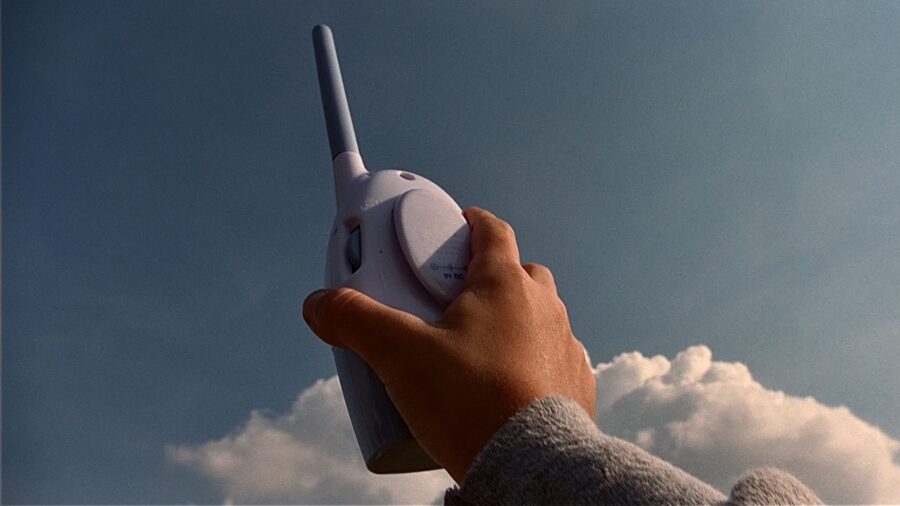
At the turn of the millennium, M. Night Shyamalan had one hell of a run with films like Wide Awake, The Sixth Sense, and Unbreakable. While this handful of films established Shyamalan as a filmmaker known for his unique twists and third-act payoffs, Signs (currently streaming on Max) is the film that shows his range because there is no real mind-bending reveal necessary to tell his alien invasion story that centers on grief and a family’s survival against insurmountable odds.
By taking a step back and focusing on a more intimate family dynamic, Shyamalan tells a heartfelt story about a priest who loses his faith after a personal tragedy when a War of the Worlds scenario plays out just outside his residence.
The Signs Setup
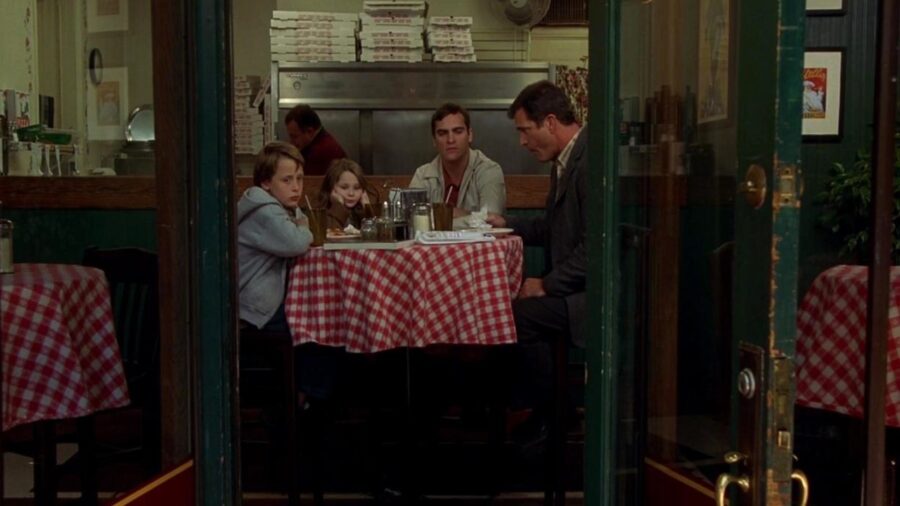
As a rabid fan of simple plots with no extraneous side-stories, Signs is one of those films that I adore because it’s so straightforward.
Mel Gibson’s Father Graham Hess, a former Episcopal priest who lost his faith after his wife was killed in a tragic accident, works as a farmer while trying his best to hold his family together. Graham’s younger brother, Merril (Joaquin Phoenix), a former minor-league baseball player, moves in to help raise Graham’s kids, Morgan (Rory Culkin) and Bo (Abigail Breslin), to the best of his ability. Morgan suffers from asthma, and Bo has a strange obsession with water, but aside from these physical ailments and personality quirks, they lead a normal life in rural Pennsylvania.
We Have Visitors
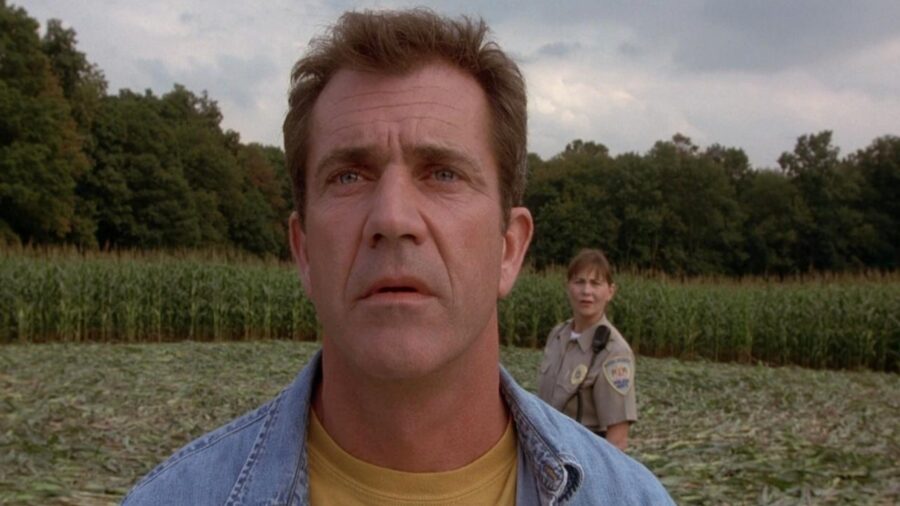
Family dynamic aside, Signs introduces its conflict through the inexplicable formation of crop circles that appear overnight outside of Graham’s house, which were initially written off as an elaborate act of vandalism. When similar formations appear across the globe, news networks confirm that this was not an isolated incident, and that there have also been sightings of unidentified flying objects and aliens as far away as Brazil. While Graham makes an earnest attempt to keep his family calm, his faith is called into question when it seems like the end times at the hands of extraterrestrials are fast approaching.
After hearing strange clicking noises through Bo’s old baby monitor, and encountering a semi-invisible figure trying to break into the house one night, Graham and Merril realize that they need to board up the windows and doors if they’re, in fact, dealing with hostile visitors of unknown origin.
The Last Supper
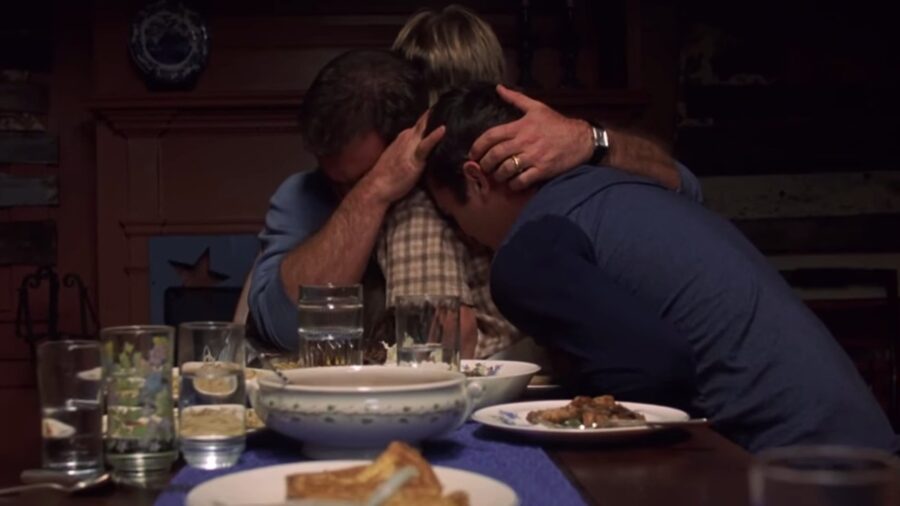
What makes Signs such a special film to me is how Graham prepares his family for what in his mind is a final showdown between good and evil– a last supper, if you will. The dinner spread includes spaghetti, french toast, mashed potatoes, chicken teriyaki, and a bacon cheeseburger. Knowing that their boarded up front door could burst open at any moment, the Hess family breaks down crying while trying to enjoy some of their favorite comfort foods, just in case they don’t live through the night.
Watching Signs after having kids myself, Graham’s paternal instincts resonated with me the most. When all hell breaks loose, it’s up to Graham to put on a brave face and let everybody know everything is going to be okay even if he’s traumatized to his core like everybody else.
Not Just An Alien Movie
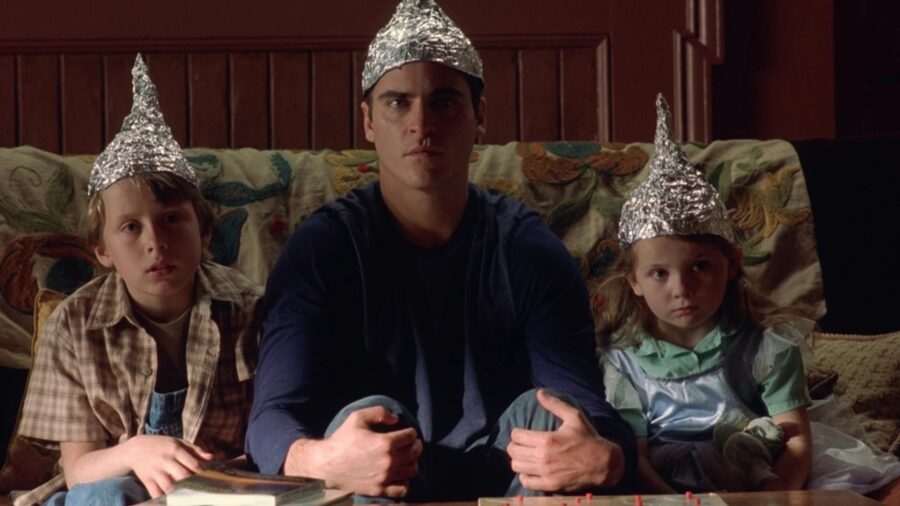

Signs isn’t an alien movie in the traditional sense. The only worldwide catastrophe we see is through newsreels, and everything else happens within the confines of the Hess residence as a single family tries to stick together when an alien invasion has the potential to tear them apart. Through this family dynamic, we get a more intimate look at what happens when nobody has answers, but they’re trying their hardest to act like they do. You don’t need worldbuilding when Graham’s entire world already lives under his roof with him, and for that reason Signs holds up because its messaging is so timeless.
As of this writing, you can stream Signs on Max. And if you want to take an even deeper dive into what I consider to be M. Night Shyamalan’s best film, you can check out the GenreVision podcast for even more insight.
